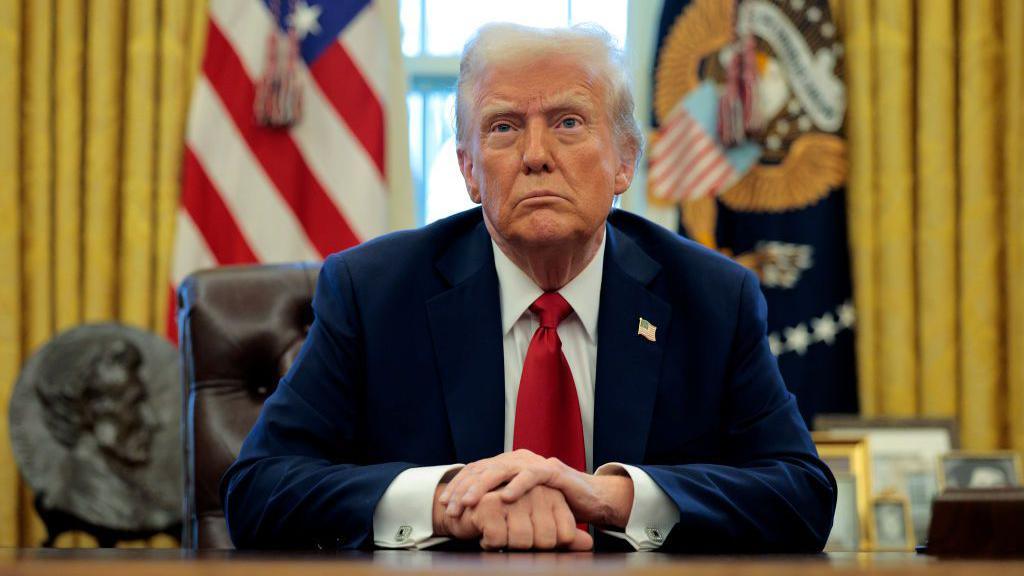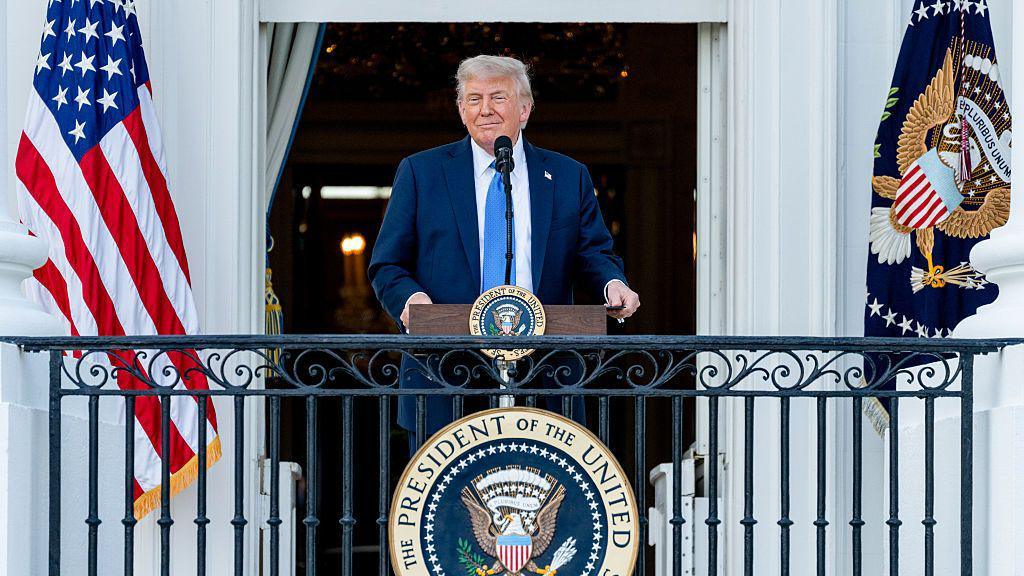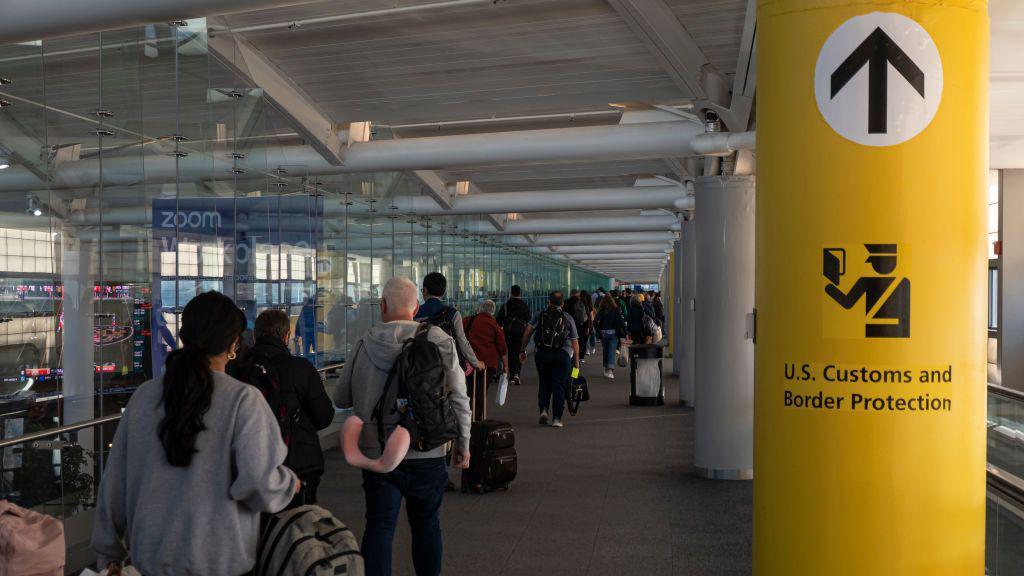President Trump bans people from some countries from travelling to USA

- Published
US President Donald Trump has signed a ban on travel to the United States for citizens from twelve mostly African and Asian countries.
Entry by people from seven other countries will be restricted in part.
President Trump says the ban, which comes into effect next week, would keep America safer.
However, human rights groups have criticised his plans, calling them "cruel," and some experts say it is likely to be challenged in US courts.
This is the second time President Trump he has ordered a ban on travel from certain countries - he signed a similar order in 2017, during his first term in office.
More like this
- Published7 November 2024
- Published3 April
What has Donald Trump announced?

From 9 June, citizens from 12 countries will be blocked from travelling to the US.
Those countries are Afghanistan, Myanmar, Chad, Republic of the Congo, Equatorial Guinea, Eritrea, Haiti, Iran, Libya, Somalia, Sudan and Yemen.
Nationals from another seven countries - Burundi, Cuba, Laos, Sierra Leone, Togo, Turkmenistan and Venezuela - will face a partial ban.
However, there are a few situations when the new rules won't apply.
These include some dual citizens - people who are citizens of two countries at the same time - as well as for athletes travelling to America to compete in events.
Several major sporting tournaments are due to be held in the US over the next few years including the 2026 World Cup and the 2028 Olympics in Los Angeles.
The order also says the American government may grant exemptions on a "case-by-case" basis.
The White House said these were "common sense restrictions" which would "protect Americans" and help keep the country safer.
The US president made immigration a big issue in last year's election campaign.
What has the reaction been to the ban?

Some people and organisations have criticised President Trump's plan and it is expected to be challenged in court.
Politicians from President Trump's rival Democratic Party in the US said the ban "betrayed" the ideals of the USA's founders and warned it would "only further isolate" America on the world stage.
Human rights groups have also spoken out against the ban.
Amnesty International USA described it as "discriminatory, racist, and downright cruel."
There has also been reaction from some of the countries named in President Trump's list.
Somalia promised to work with the United States to address any security issues.
Venezuela's Interior Minister Diosdado Cabello warned that "being in the United States is a great risk for anyone, not just for Venezuelans."
Has this happened before?
Watch: Newsround reports on President Trump's previous travel ban (January 2017)
President Trump ordered a similar travel ban during his first term in the White House in 2017.
It featured some of the same countries as his latest order, including Iran, Libya and Somalia.
Thousands gathered at airports around the US to protest against the ban, including lawyers who offered their services for free to help those affected.
In 2021, when Joe Biden became US President after Donald Trump, he scrapped the travel ban.
